
Okay! We are set to make a game. We know what the premise is, we have our equipment ready and a good environment to work in, so what’s next? Jump in and start modelling? No! Hold your horses there. As discussed before the key to success is planning, and to that end we need to set out a few things before we begin the actual construction phase.
We need to decide what path the player will take, what obstacles they should encounter, whether there are any shortcuts and the all-important mechanics of the gameplay. However, before we start we need to set the tone. What does the player’s in-game environment feel like, are there any notable visual cues to allow them a sense of familiarity or impending doom? I’m not talking about specific structures here, although important to keep in mind. I’m thinking about colours and their emotional impact.
I’ll add a caveat here. The process I’m describing may apply to indie artists and small studios but can vary wildly, especially as the teams become departments. You are acting as the client, creator, art director, engineer, artist, musician and UX developer. With that in mind, I’m running through this course in a fairly linear process, in an attempt to give you a grounding in the overall story of game development.
Back to the topic in hand, which is the look of the game. The concept and brief define certain aspects of this, so let’s start there and see what we need to add.
We know it’s planet based, in a valley, with varying areas, and that the player needs to travel along a path from point A to point B. We also know it needs to be an open-world but with a fairly clear path for them to follow. There need to be small hints towards either an ancient or alien society.
This story is from the {{IssueName}} edition of {{MagazineName}}.
Start your 7-day Magzter GOLD free trial to access thousands of curated premium stories, and 9,000+ magazines and newspapers.
Already a subscriber ? Sign In
This story is from the {{IssueName}} edition of {{MagazineName}}.
Start your 7-day Magzter GOLD free trial to access thousands of curated premium stories, and 9,000+ magazines and newspapers.
Already a subscriber? Sign In

Nvidia GeForce RTX 4080 Super Founders Edition
On the surface, the GeForce RTX 4080 Super is barely any different from the vanilla GeForce RTX 4080 that was launched in 2022.

MCU VFX moments
Pros choose their favourite CG shots from the Marvel Cinematic Universe
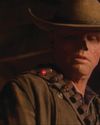
Nosing around on Fallout
We sniff out the story of how FutureWorks brought The Ghoul to life with the creation of his iconic noseless face

DISCOVER RED GIANT GEO'S HANDY TOOLS
Heather Sterland introduces one of the newest additions to Maxon's suite of Red Giant VFX plugins with an atmospheric lunar creation
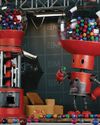
BUILD AND ANIMATE A FUN-FILLED ROBOT
Expand your horizons with Julio Benavides, who reveals his workflow for creating a charming hard-surface character

DESIGN STRIKING SCULPTS AT SPEED
Learn how to build 3D characters that balance visual quality and efficient workflow with pro advice from Oh Holy Mary
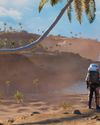
CREATE A CANYON ENVIRONMENT
Build a stunning desert setting with an expert walkthrough from Romain Eboli, who uses high-quality Quixel assets
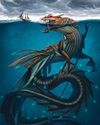
TURN A 2D CONCEPT INTO AN INCREDIBLE 3D-PRINTED FIGURE
Concept artist Emily Chapman shares her process for sculpting, printing and painting an outstanding model to put on display

Goodbye SAIGON
Trevor Hogg gets held captive by multiple versions of Robert Downey Jr.while uncovering the visual effects of HBO's spy series The Sympathizer
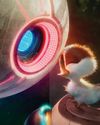
IMPRESSIONISTIC REALISM
Trevor Hogg learns how the artisan aesthetic came to be for The Wild Robot